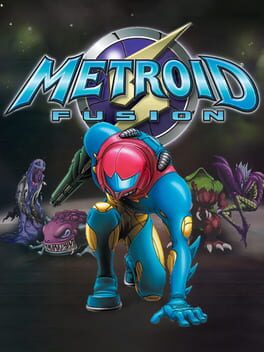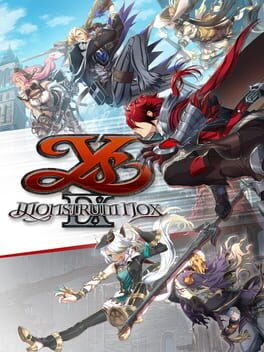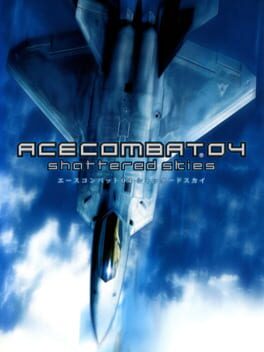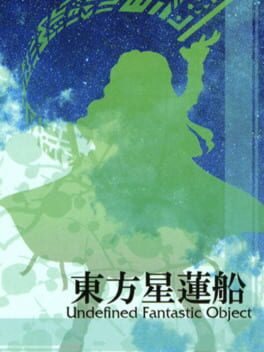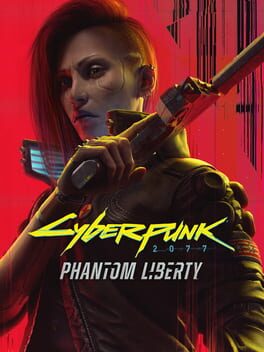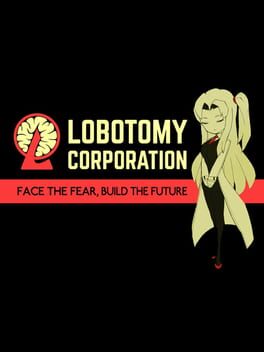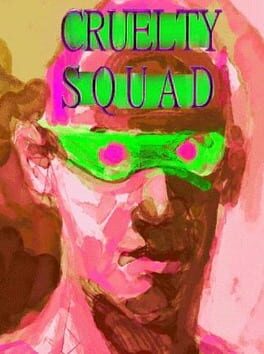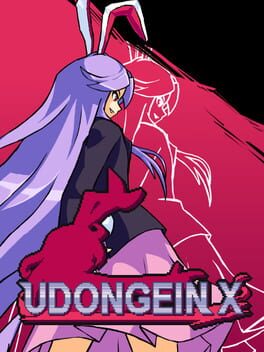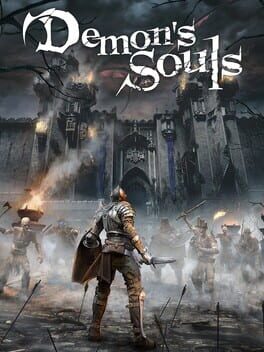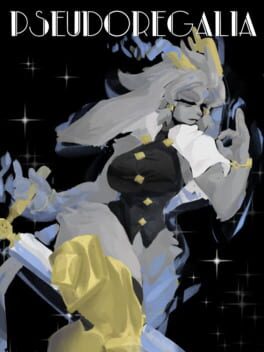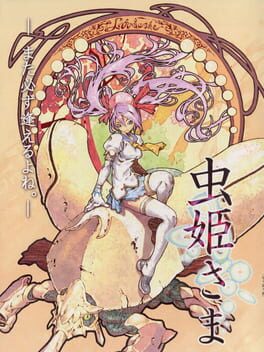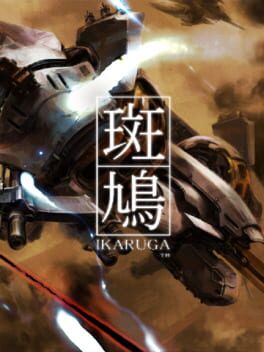Apocynadeae
2002
2019
I would easily say that I consider Ys VIII Falcom's magnum opus. The base of the game is perfectly crafted to perfection, with its exploration being fun and immensely rewarding and its gameplay being easy to learn but immensely satisfying to execute. Alongside that, it has an immaculate setting, with a lot of variety that never necessarily strays from its base concept but keeps it fresh to play through its 50 hour runtime. Additionally, I love the Village; every character feels important and related to this world and united to the cause, and seeing more people join and the village develop is a joy, giving stronger motivation to do the side quests, not just for the true ending, but for the village. The plot is also amazing and the mysteries drew me in more and more and the ending was amazing.
But this isn't a review for Ys VIII, but IX. Why write so much about a different game for a review for its sequel? That's easy: because IX does every aspect of this in a much worse way.
Obviously, to get positives out of the way, traversal and combat is still perfect. It'd be hard to mess up, but this is definetly an improvement to VIII. All the characters are a fun time and the new abilities lead to very fun traversal. The music is also good. That's where the positives ends.
The biggest problem IX suffers from is its structure. Fair warning that I dropped this game at chapter 5 so I at least have a strong grasp on it until that point, but IX is an immensely repetitive game to that point. Each chapter starts with you doing some side quests to max out the gauge, which then you do a non-Monstrum Adol section, which then the Monstrums reenter the prison through a previous dungeon, and you get a new character for Primavera. Then, plot ensues, you explore the newly unlocked section of the map, go through a dungeon, fight a boss, and reenter the prison.
The best way to describe these 5 chapters is immensely tedious and repetitive. There are interesting parts of these characters, for example, Doll and Hawk are both great, but it is not enough to really carry this game when little to no actual progress to the plot is done.
You could, of course, say that the lack of progress isn't too bad as its added focus to the characters and exploration is useful, and maybe I'd agree, but while IX's toolset for exploration is great, its actual settings are barren. All the locales, barring any set outside Balduq which even then feel a little boring, are brown-gray dark and ugly dungeons that feel akin as if walking through New York during a power outtage at night. Exploration never does feel fresh or interesting because every locale is the exact same, and thus only the actual toolset can really carry the game.
Even then, to switch gears, let's talk about the characters. Remember what I said about Ys VIII's Castaway Village? What if you copied it and did absolutely nothing to rectify it or adapt it for the new setting? That's Primavera. Primavera is immensely uninteresting and its members lack any real hook or reason to want to interact with them. The Castaway Village works entirely because of the setting; these characters are entirely incapable of escaping the island, and even less so alone, so survival works out. It immerses you into their desires and wants. But Primavera has none of these ties; all these people can just... leave.
(Its strongest use is giving the Monstrums a safe haven, but I honestly feel it's a little silly considering they existed for a while before...? But, y'know, details.)
So what exactly does Ys IX have going for it? If the exploration is inherently repetitive and the structure drags more than it helps, and the combat can only go so far for the game, what else can really carry it?
...The story?
Obviously, I can't comment on it considering I did 5 chapters out of the 9 the game has, but the story isn't particularly interesting. Sure, Balduq's circumstances invite some intrigue, but it's intrigue that doesn't exactly carry through the whole game and more with the Adol segments specifically as the rest of the chapters focus more on the party member's specific focus. Which are... hit or miss. I don't like White Cat's much because the Robin Hood angle is good, but the execution of it feels a little mean-spirited. I do like Hawk and Doll's since I like their characters and specific struggles, but I felt fatigue start to hit with Raging Bull which I thought was mediocre, and the final one seemed to be the same.
It is a bit of a shame that Ys IX is more preoccupied with grabbing onto the good parts of Ys VIII and forcing nu-Kiseki's structure and pacing because IX could have easily been a strong concept if it played to its strengths and had structure and pacing that fit Balduq much better; implementing something more linear like Origin's tower fits much more than the survival aspect that VIII was built with and it would have immensely improved the game even if it meant removing the party members for a solo-Adol venture. But hey, we have a game, and it is... immensely mediocre at best.
But this isn't a review for Ys VIII, but IX. Why write so much about a different game for a review for its sequel? That's easy: because IX does every aspect of this in a much worse way.
Obviously, to get positives out of the way, traversal and combat is still perfect. It'd be hard to mess up, but this is definetly an improvement to VIII. All the characters are a fun time and the new abilities lead to very fun traversal. The music is also good. That's where the positives ends.
The biggest problem IX suffers from is its structure. Fair warning that I dropped this game at chapter 5 so I at least have a strong grasp on it until that point, but IX is an immensely repetitive game to that point. Each chapter starts with you doing some side quests to max out the gauge, which then you do a non-Monstrum Adol section, which then the Monstrums reenter the prison through a previous dungeon, and you get a new character for Primavera. Then, plot ensues, you explore the newly unlocked section of the map, go through a dungeon, fight a boss, and reenter the prison.
The best way to describe these 5 chapters is immensely tedious and repetitive. There are interesting parts of these characters, for example, Doll and Hawk are both great, but it is not enough to really carry this game when little to no actual progress to the plot is done.
You could, of course, say that the lack of progress isn't too bad as its added focus to the characters and exploration is useful, and maybe I'd agree, but while IX's toolset for exploration is great, its actual settings are barren. All the locales, barring any set outside Balduq which even then feel a little boring, are brown-gray dark and ugly dungeons that feel akin as if walking through New York during a power outtage at night. Exploration never does feel fresh or interesting because every locale is the exact same, and thus only the actual toolset can really carry the game.
Even then, to switch gears, let's talk about the characters. Remember what I said about Ys VIII's Castaway Village? What if you copied it and did absolutely nothing to rectify it or adapt it for the new setting? That's Primavera. Primavera is immensely uninteresting and its members lack any real hook or reason to want to interact with them. The Castaway Village works entirely because of the setting; these characters are entirely incapable of escaping the island, and even less so alone, so survival works out. It immerses you into their desires and wants. But Primavera has none of these ties; all these people can just... leave.
(Its strongest use is giving the Monstrums a safe haven, but I honestly feel it's a little silly considering they existed for a while before...? But, y'know, details.)
So what exactly does Ys IX have going for it? If the exploration is inherently repetitive and the structure drags more than it helps, and the combat can only go so far for the game, what else can really carry it?
...The story?
Obviously, I can't comment on it considering I did 5 chapters out of the 9 the game has, but the story isn't particularly interesting. Sure, Balduq's circumstances invite some intrigue, but it's intrigue that doesn't exactly carry through the whole game and more with the Adol segments specifically as the rest of the chapters focus more on the party member's specific focus. Which are... hit or miss. I don't like White Cat's much because the Robin Hood angle is good, but the execution of it feels a little mean-spirited. I do like Hawk and Doll's since I like their characters and specific struggles, but I felt fatigue start to hit with Raging Bull which I thought was mediocre, and the final one seemed to be the same.
It is a bit of a shame that Ys IX is more preoccupied with grabbing onto the good parts of Ys VIII and forcing nu-Kiseki's structure and pacing because IX could have easily been a strong concept if it played to its strengths and had structure and pacing that fit Balduq much better; implementing something more linear like Origin's tower fits much more than the survival aspect that VIII was built with and it would have immensely improved the game even if it meant removing the party members for a solo-Adol venture. But hey, we have a game, and it is... immensely mediocre at best.
1994
2018
This review contains spoilers
Currently going through a Cyberpunk playthrough for the first time with no real context for Cyberpunk's history or CDPR's other outputs such as The Witcher 3, Phantom Liberty's high acclaim as well as wanting to get fully into CRPGs like this tempted me with sweet words to embrace it and enter the world of Night City. I'm still not done, but I did instantly jump into Phantom Liberty's story the second and purely focused on it as much as I could. The rest of the game's... fine, I'll finish it up right after but I won't focus too much on that. I mostly want to talk about Phantom Liberty in a sort of ramble-y way since I just finished it and was basically entirely thinking about it during my shift before I did the final mission.
Phantom Liberty's entire thesis statement is localized entirely in its name. Phantom; a ghost. A figment of the imagination. Like an illusion you see for a split second, the little white noise in your eyes. Liberty. The "american ideal". The thirst for pure freedom of options, for us to do what we want with no constraints. Presenting us with that deep-seated desire, but as fleeting wants that don't transpire is what this expansion is all about; wanting to escape a past that you never manage to outrun.
Dogtown is defined by its past, entirely dependant on its militaristic society to prevent itself collapsing to the outside world. Reed is haunted by guilt of lying to Alex, and wanting to reconnect with So Mi, the spectres of the men who died alongside him haunting him. Alex can't help but have pure hate for Reed, but it is a hurdle that Reed attempts to bypass in a "getting the gang back together" sense. And So Mi.
Man.
So Mi is... she's hard to describe. But that's not a negative. In fact, it's the best part of Phantom Liberty. So Mi is selfish. She's utterly narcissistic and preoccupied entirely with her survival; and you can't blame her. Of course she'd be like that; she can't trust Reed with his status as an FIA agent. Of course she can't trust Myers, who she knows only wants her for her ability with the Blackwall. She can't trust anyone to not want her for some secret want. She can't trust you. She never does. But that's what makes her ending so good.
She doesn't trust you, but you sure as hell trust her. You want to stick by her. You want to help her live because it means you'll live. It's a pure, selfish desire alongside So Mi's that reflects perfectly as parallels who crossed over. And when it's revealed the Matrix can only save one of them? It's no exaggeration that Phantom Liberty's complicated web of relationships, trust and betrayals truly shines in the faceoff with Reed. Do you let your anger abandon So Mi? Do you, despite her lies, want to help her? That's the thing: it's empathy that wins out! You see yourself in So Mi! Who cares if she betrays you and lies to you; no wonder she is! Who wouldn't? It's perfect bait, a perfect pawn that becomes an extremely necessary ally, and a savior who becomes someone important to you and who you want to save because she matters to you!
So Mi and V's relationship is an amazing way of bouncing off of this conflict. Phantom Liberty is an amazing expansion for making such a complicated web work out in such an exceedingly perfect way. But for me? Despite everything, I'd still put all my coins to So Mi. It's fine if she betrays me. I want her to live. I see how she suffers because of her past, and how that is me. And I want her to get that relief, because I sure as hell am gonna try to get it for myself.
Phantom Liberty's entire thesis statement is localized entirely in its name. Phantom; a ghost. A figment of the imagination. Like an illusion you see for a split second, the little white noise in your eyes. Liberty. The "american ideal". The thirst for pure freedom of options, for us to do what we want with no constraints. Presenting us with that deep-seated desire, but as fleeting wants that don't transpire is what this expansion is all about; wanting to escape a past that you never manage to outrun.
Dogtown is defined by its past, entirely dependant on its militaristic society to prevent itself collapsing to the outside world. Reed is haunted by guilt of lying to Alex, and wanting to reconnect with So Mi, the spectres of the men who died alongside him haunting him. Alex can't help but have pure hate for Reed, but it is a hurdle that Reed attempts to bypass in a "getting the gang back together" sense. And So Mi.
Man.
So Mi is... she's hard to describe. But that's not a negative. In fact, it's the best part of Phantom Liberty. So Mi is selfish. She's utterly narcissistic and preoccupied entirely with her survival; and you can't blame her. Of course she'd be like that; she can't trust Reed with his status as an FIA agent. Of course she can't trust Myers, who she knows only wants her for her ability with the Blackwall. She can't trust anyone to not want her for some secret want. She can't trust you. She never does. But that's what makes her ending so good.
She doesn't trust you, but you sure as hell trust her. You want to stick by her. You want to help her live because it means you'll live. It's a pure, selfish desire alongside So Mi's that reflects perfectly as parallels who crossed over. And when it's revealed the Matrix can only save one of them? It's no exaggeration that Phantom Liberty's complicated web of relationships, trust and betrayals truly shines in the faceoff with Reed. Do you let your anger abandon So Mi? Do you, despite her lies, want to help her? That's the thing: it's empathy that wins out! You see yourself in So Mi! Who cares if she betrays you and lies to you; no wonder she is! Who wouldn't? It's perfect bait, a perfect pawn that becomes an extremely necessary ally, and a savior who becomes someone important to you and who you want to save because she matters to you!
So Mi and V's relationship is an amazing way of bouncing off of this conflict. Phantom Liberty is an amazing expansion for making such a complicated web work out in such an exceedingly perfect way. But for me? Despite everything, I'd still put all my coins to So Mi. It's fine if she betrays me. I want her to live. I see how she suffers because of her past, and how that is me. And I want her to get that relief, because I sure as hell am gonna try to get it for myself.
2018
2021
2021
funnily enough consider this stronger than Mega Man X itself; simple but very fun level design that feels a little closer to the more streamlined design of the Zero series while its focused view of merging the basic X running and gunning with Touhou's danmaku structure. Big fan of how bombs work and the game just feels great once you've gotten all the upgrades, which are very easy to obtain.
2020
2023
some cool and fun movement held back by multiple pointless mechanics and hit or miss level design alongside weightless boring and especially janky combat and a complete and utter lack of direction and map; you dont want "shorter games with worse graphics" if the result is something like this; at least have a MAP come on especially with something as obtuse as the level design of this game, this shit looks like castlevania 64
2004
im still pretty new to bullet hell games but theyre a genre of games id really wanna get into more and learn more of. regardless I did the normal, arrange and 1.5 modes, and i really enjoyed them all. I think arrange is probably my preferred way, but I also really enjoy the gameplay style that 1.5 incentivizes with its speed and your absolute destructive capabilities. big fan of the soundtrack, the visuals, really its a pretty great controlled experience and i think ill probably whittle away at it more and more as i get more used to these kinds of games
2001
Quick review since there isn't too much I can say about this game that comes to mind as of right now: Interesting to play after the Dusk trilogy considering how notable aspects of it carry from Shallie while also reinventing itself into a less plot focused game and one much more focused on a small cast. It's not as if these games were never about the years of life our protagonist lives through and learns from alongside the countless peers that accompany them but Sophie leans into it much more relative to Dusk considering there isn't really much of a plot or a driving impetus, and the lack of a time limit makes it much more apparent. The game is about Sophie growing as a person and an alchemist into adulthood, and the cast generally reflects on aspects of that, and the lack of focus on combat and much bigger focus on alchemy (think about how the combat level caps at 20) reflects on that as well. The wardrobe changes and Plachta's development both as a character but mechanically speaking, etc., it's all just about growth and despite a couple of problems the game has with its events I do think it's executed well enough, I like the cast and might go back some other day to do a 100% run so I can fully see what each character holds. Regardless I like these games because they're fun and relaxing and I enjoy the amount of personal experience a player has, so I'm not in a rush. Pretty obtuse and unclear but irrelevant with the Sophie Codex. Sophie and Plachta/Corneria fucked btw
